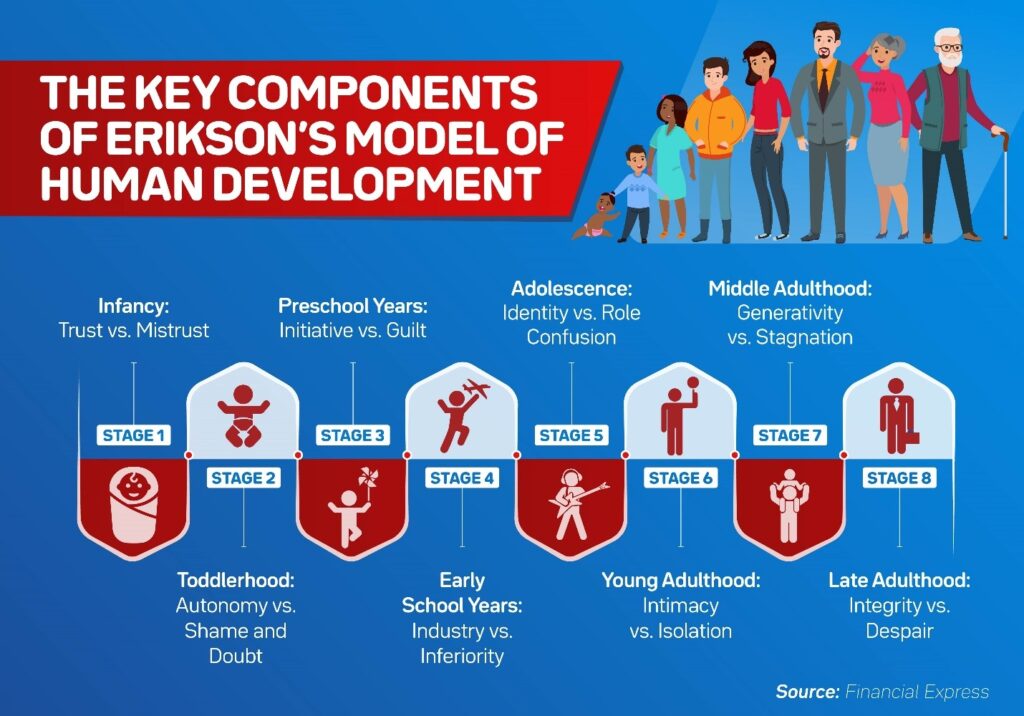As an aspiring middle grade author, you’ve probably heard this before – if you want to write compelling, relevant stories, you have to know your audience inside and out.
Today we’re going to talk about that inside part- the emotional and social developmental milestones of kids. Although there are many ways of considering developmental milestones, one way is to take a look at the middle grade reader from the perspective of the grandfather of child psychology, Erik Erikson.
Erikson’s work categorizes the developmental stages of growth into eight stages from Infancy to Late Adulthood.
Within each stage, he says, there is a central conflict. The way in which the person overcomes this conflict affects his or her social and emotional development. If for some reason the person doesn’t develop the skills needed to succeed, they may struggle in the next stages of their development.

Middle grade readers are generally between eight and twelve years old. This places them firmly in Erikson’s stage four – Industry vs. Inferiority.
When he uses the term ‘industry,’ Erikson isn’t talking about working the factory line or a particular economic segment. He’s talking about hard work. He’s referring to becoming an industrious person – someone who practices a skill until they master that skill.
This stage is all about building competence and confidence. And as the name of stage four suggests, if a child doesn’t develop competence and confidence, they will move into stage five feeling inferior.
Stage four kids begin comparing themselves to the world around them and asking questions like “How do I measure up?” “What am I good at?”
For kids this age, the world around them is their school environment and their home, but friends and classmates begin to take on more influential roles. Plus, instead of playing and learning for fun, now kids are being graded on their abilities by teachers, and rated on their performance by other kids.
Erikson emphasizes the importance of adults in positive psychosocial development. Kids need trustworthy, reliable people to come alongside them as they work to solve their own problems. Adults should emphasize effort rather than outcome.
We know that in real life, adults are not always helpful and encouraging. Also in real life, sometimes well-meaning adults can be too helpful and remove the child’s opportunity to develop their own skills. As a middle grade author, we know that kids want to see themselves as the hero in their stories, so we want to be careful about how much/what kind of adult interaction we write.
So what does this have to do with writing for middle grade readers? Understanding these developmental stages can help us weave authentic environments, characters, and plot points for middle graders.
Ask yourself:
- Does my main character have realistic struggles? What is my MC good at? What challenges him/her?
- Are there opportunities for the MC to try and fail at something? What are the other characters’ reactions to this?
- Do the adult characters help build (or obstruct) the MCs sense of competency? Do they try to solve the MCs problem for them, or give them adequate space to try and fail?
Understanding developmentally appropriate stages can help authors craft realistic and compelling stories that readers will love.

When Kelli McKinney and her family aren’t exploring national parks, she can be found sipping cinnamon tea, struggling to keep houseplants alive, or chucking a toy across the backyard for her English Mastiff. She earned her bachelor’s degree in journalism from the University of Oklahoma and her graduate degree in radio/tv/film from the University of North Texas. She enjoyed an eclectic-yet-fulfilling career in corporate marketing before wandering off to be a writer. Now, she is a part-time copywriter and blogger, a full-time mom, and a children’s author. JEFF PENNANT’S FIELD GUIDE TO RAISING HAPPY PARENTS is her debut novel. She can be reached through her website for events, visits, and questions at www.kellimckinney.com.


 We love helping your growing in your writing career.
We love helping your growing in your writing career.

No Comments